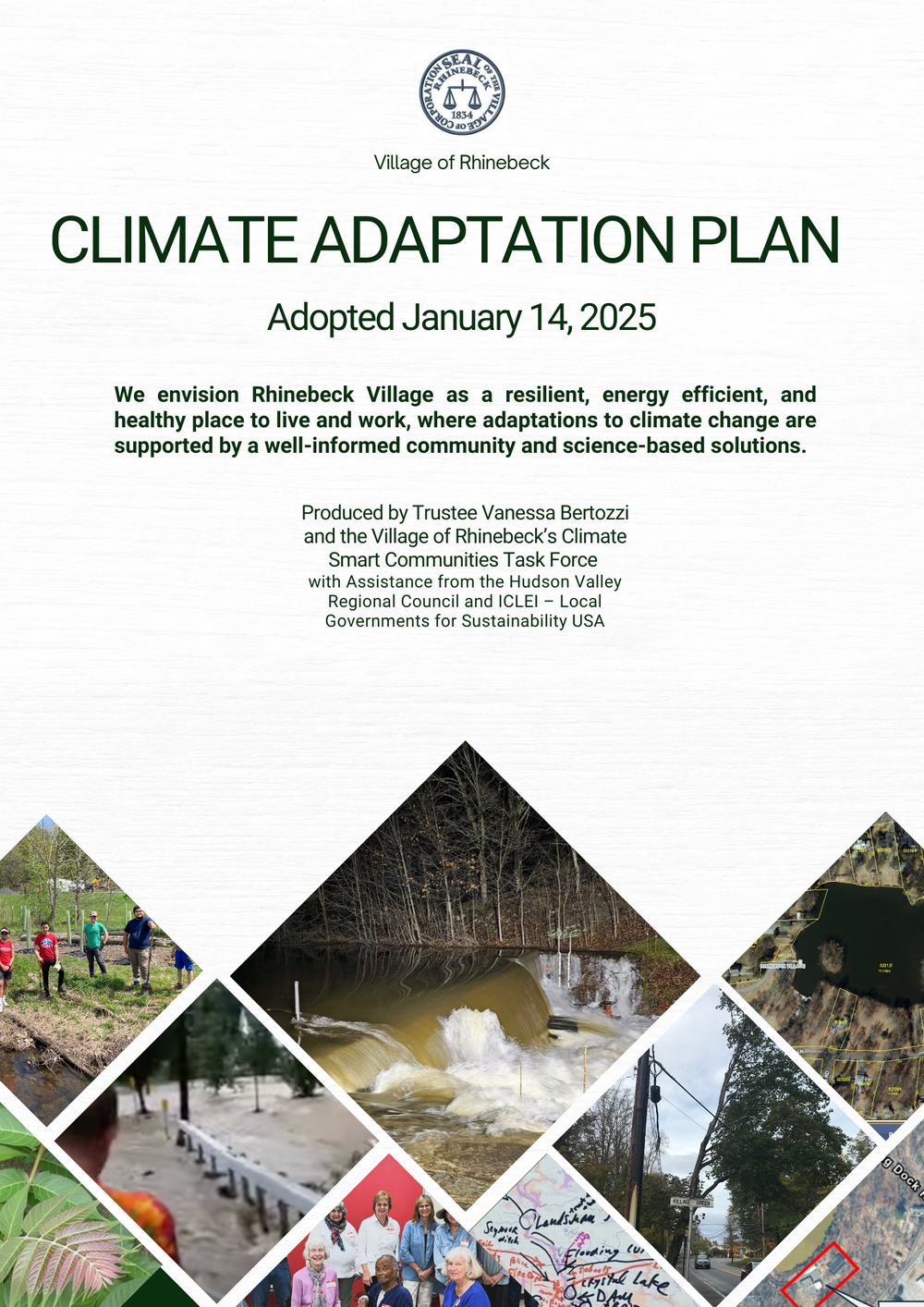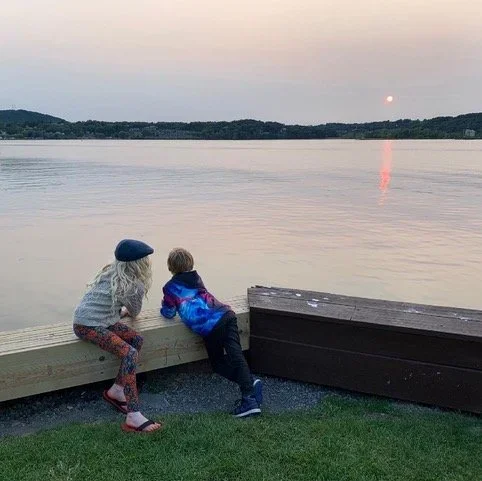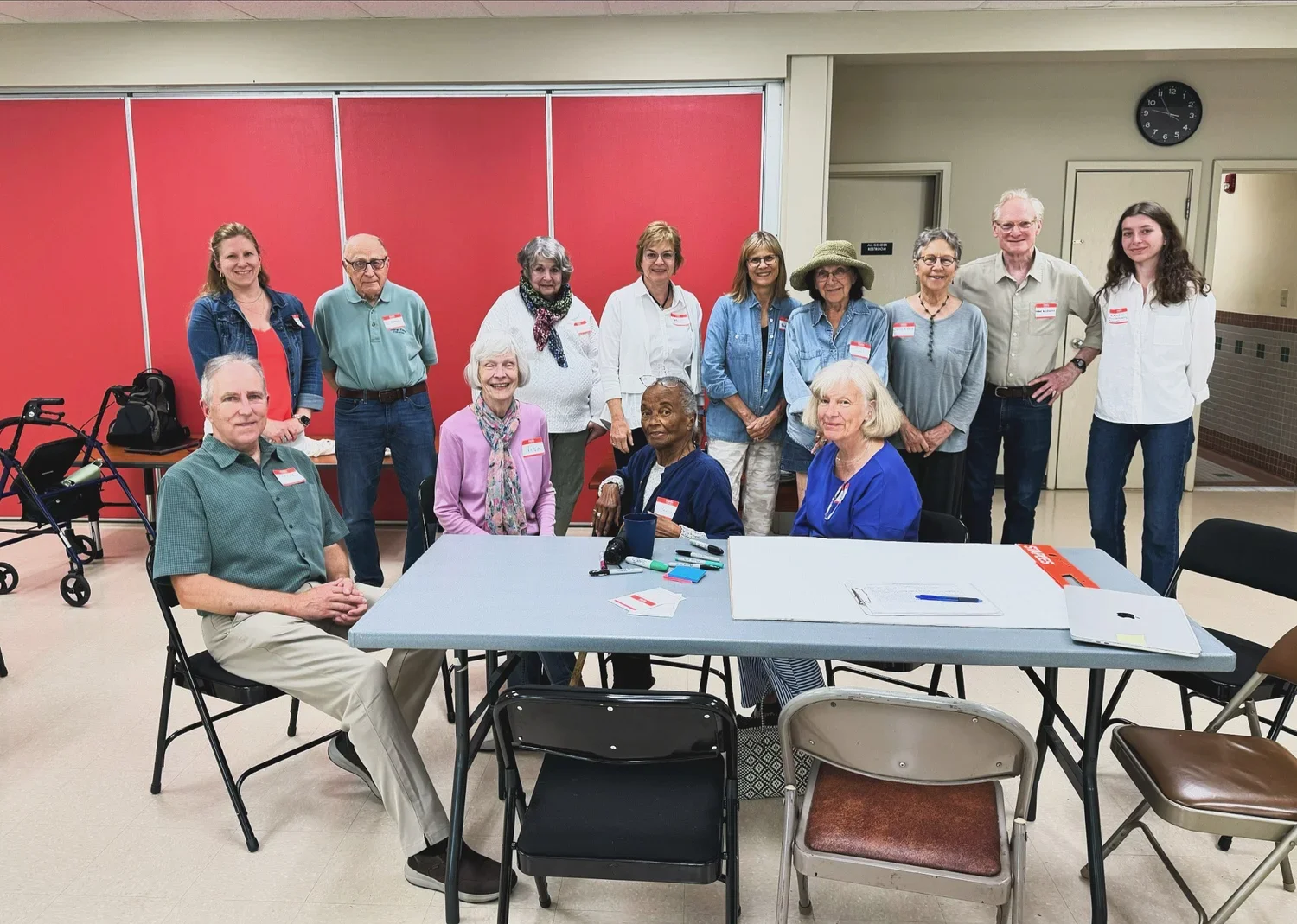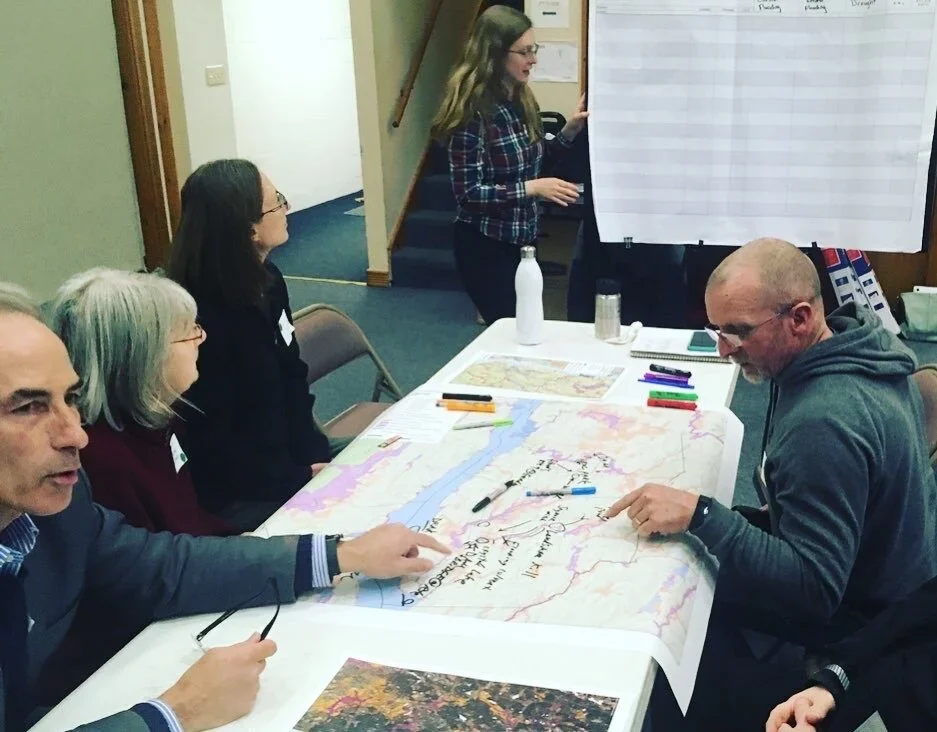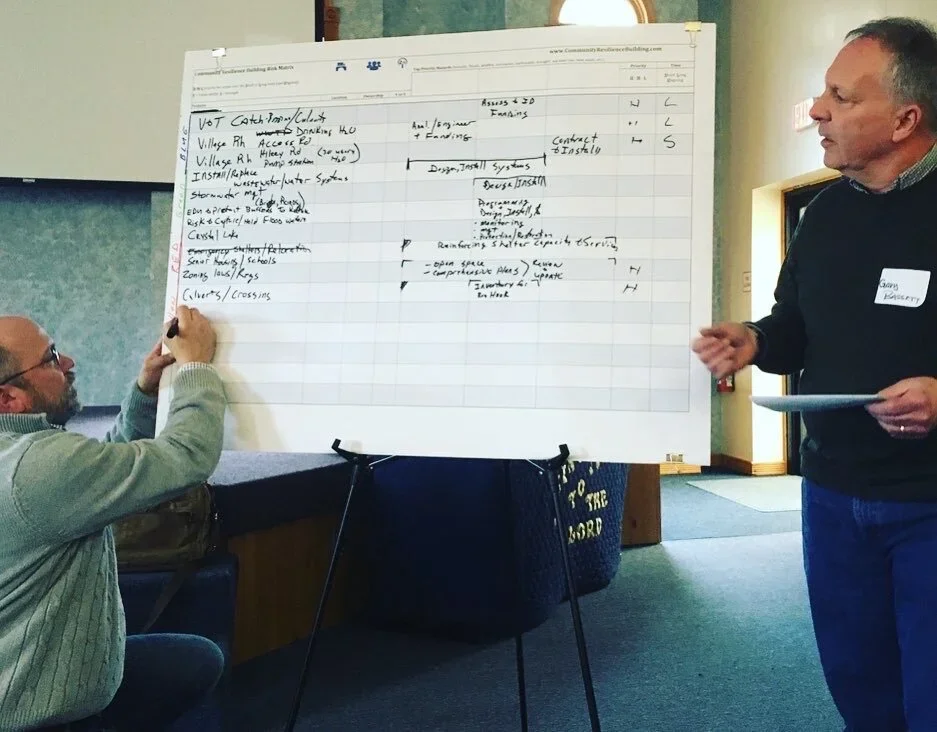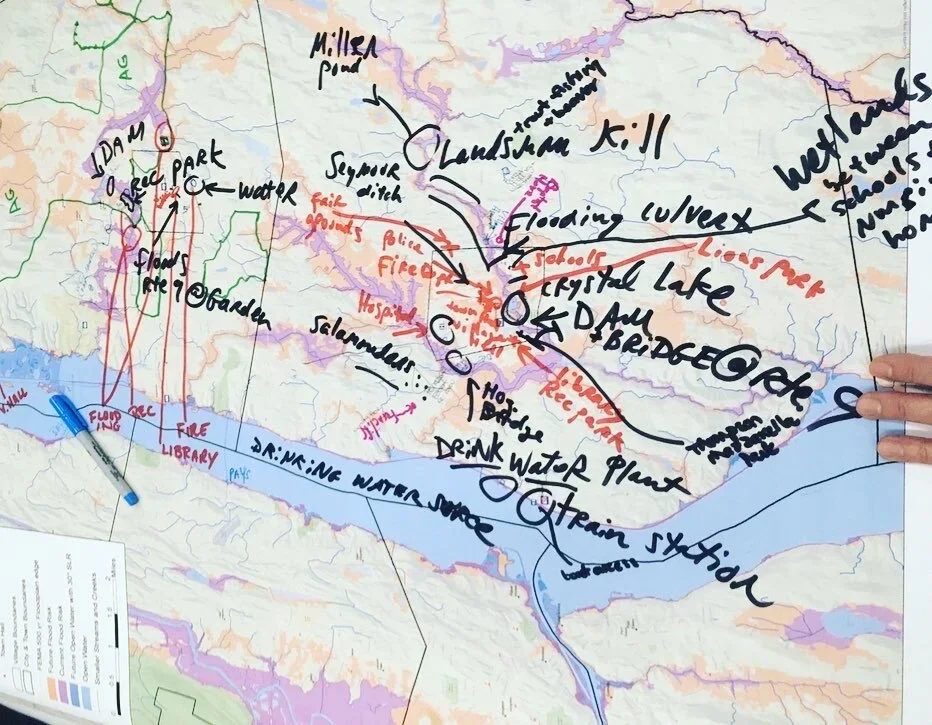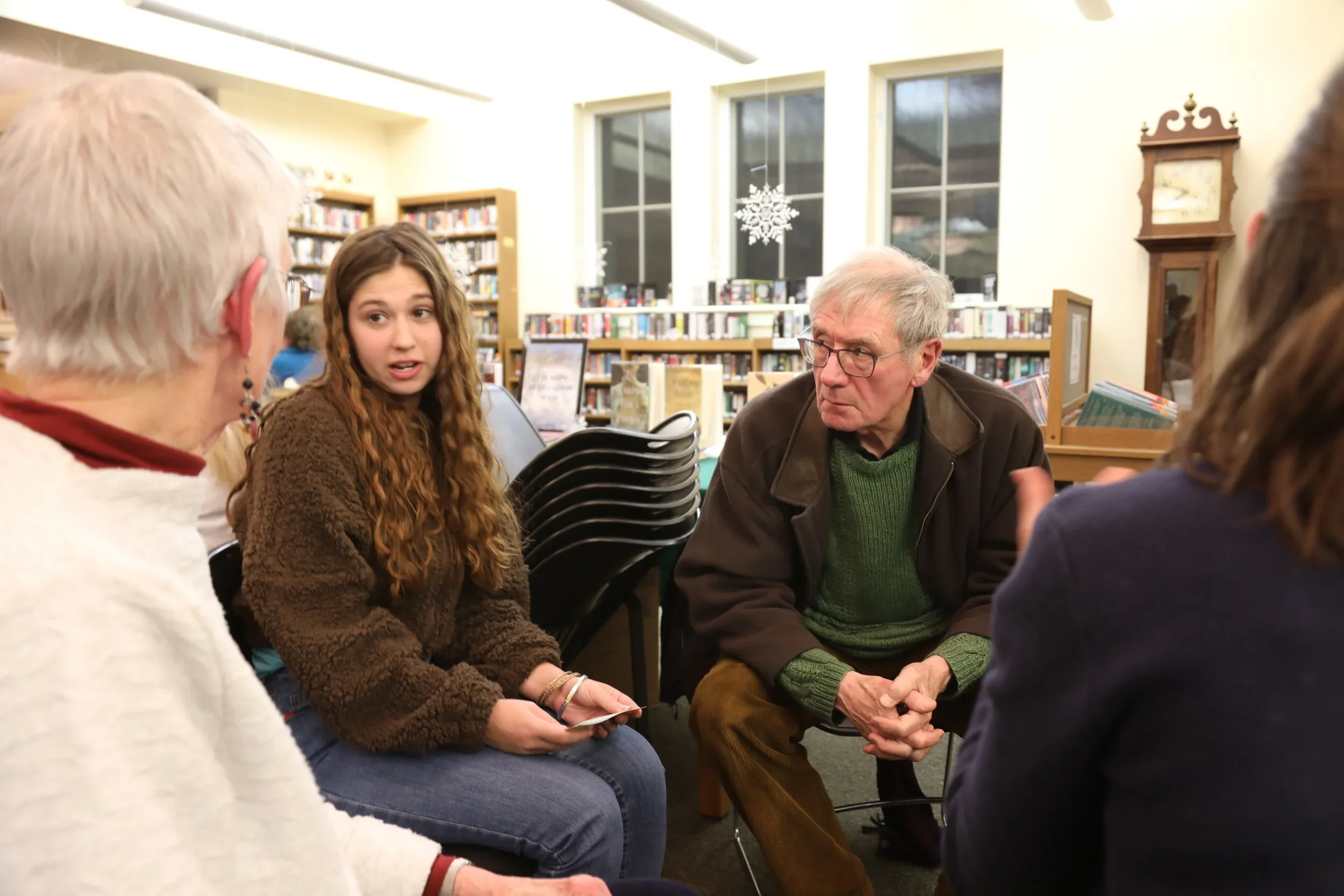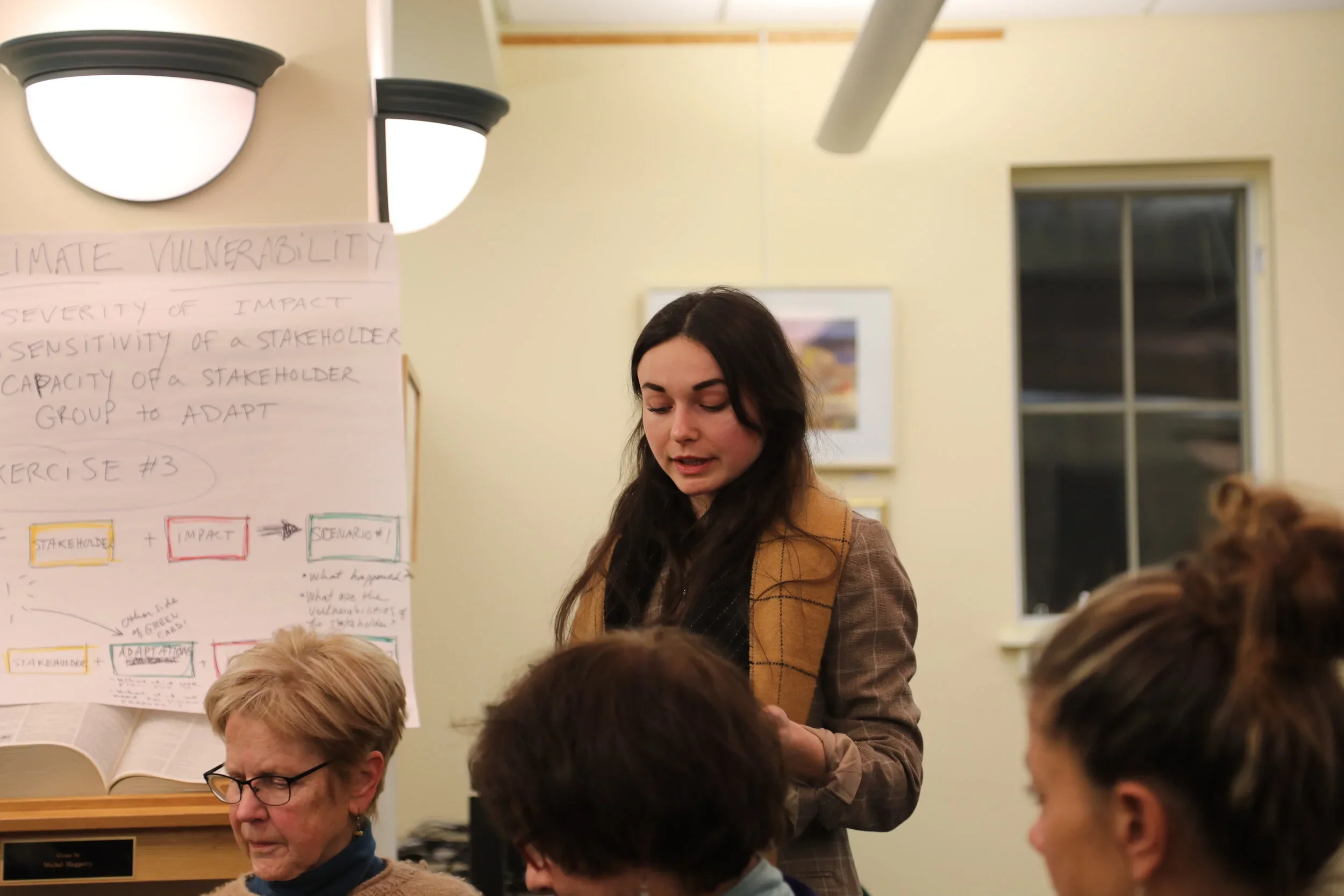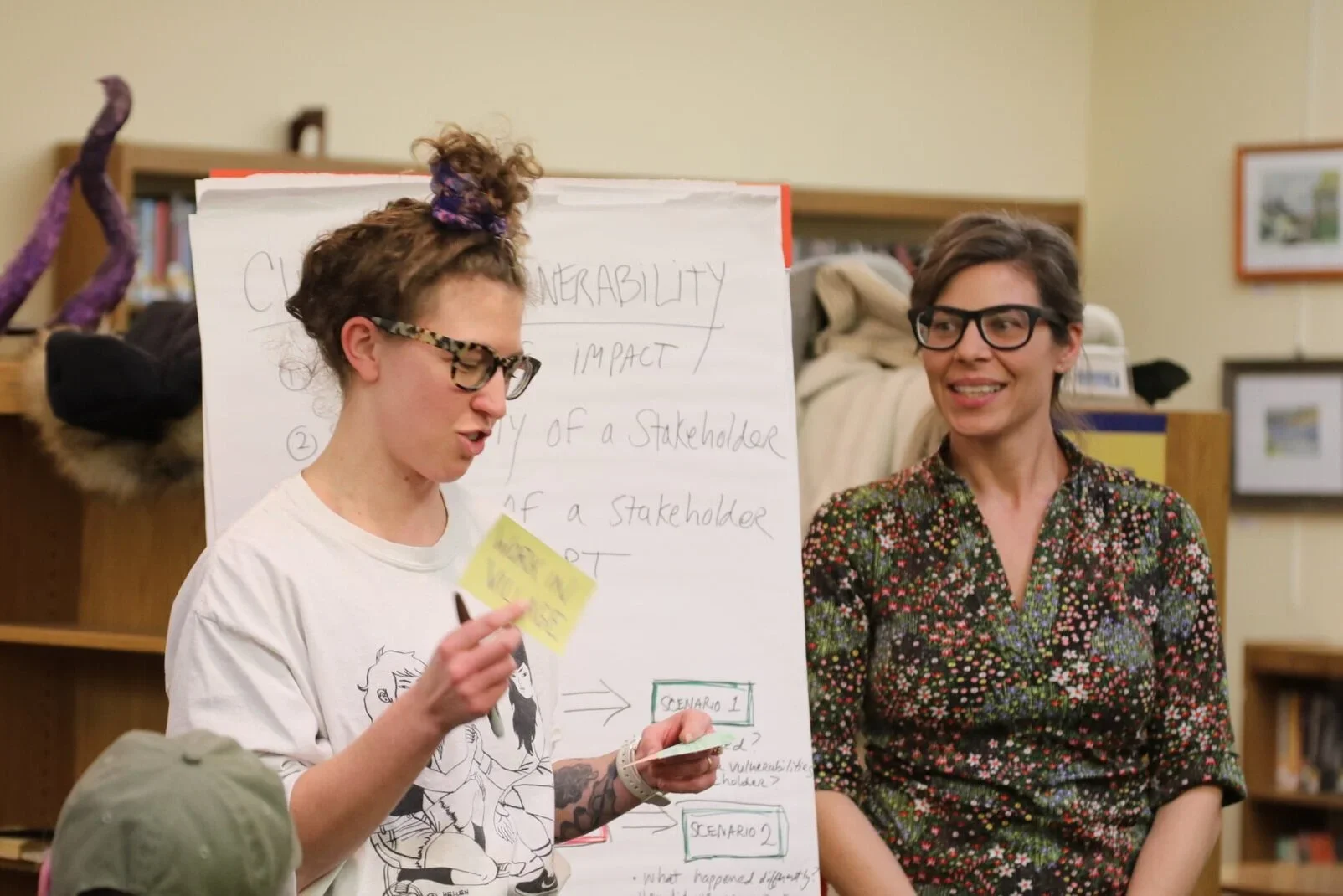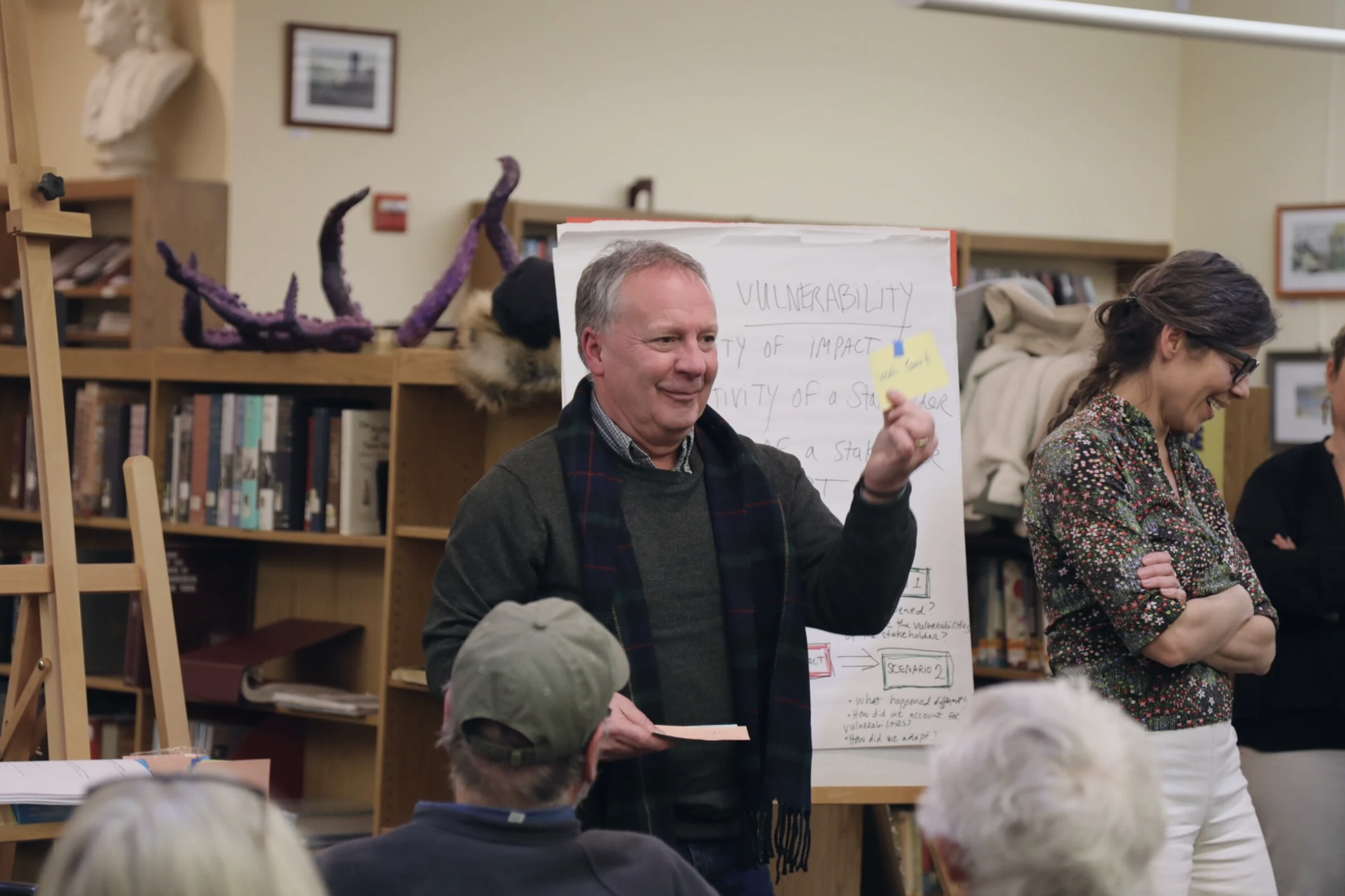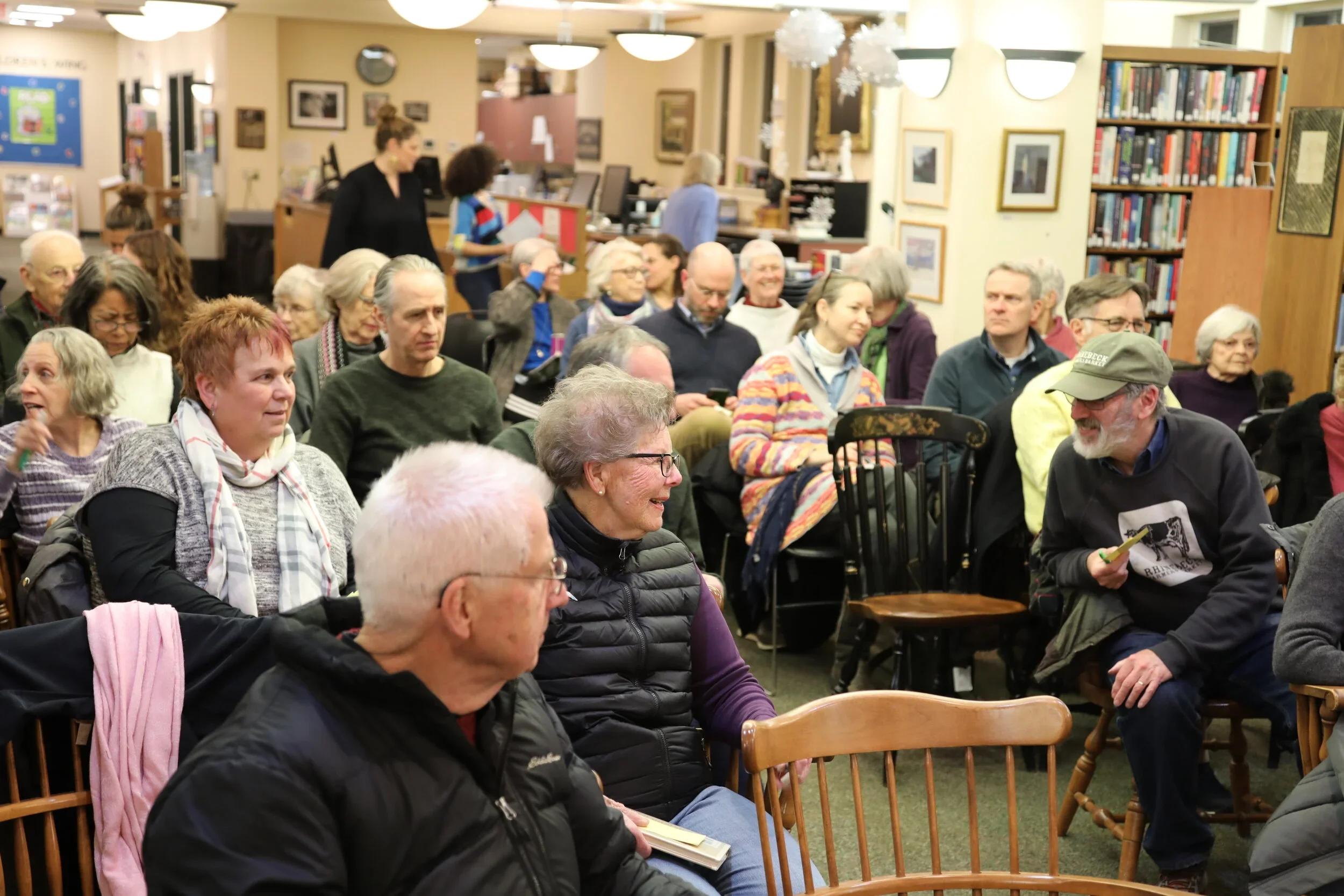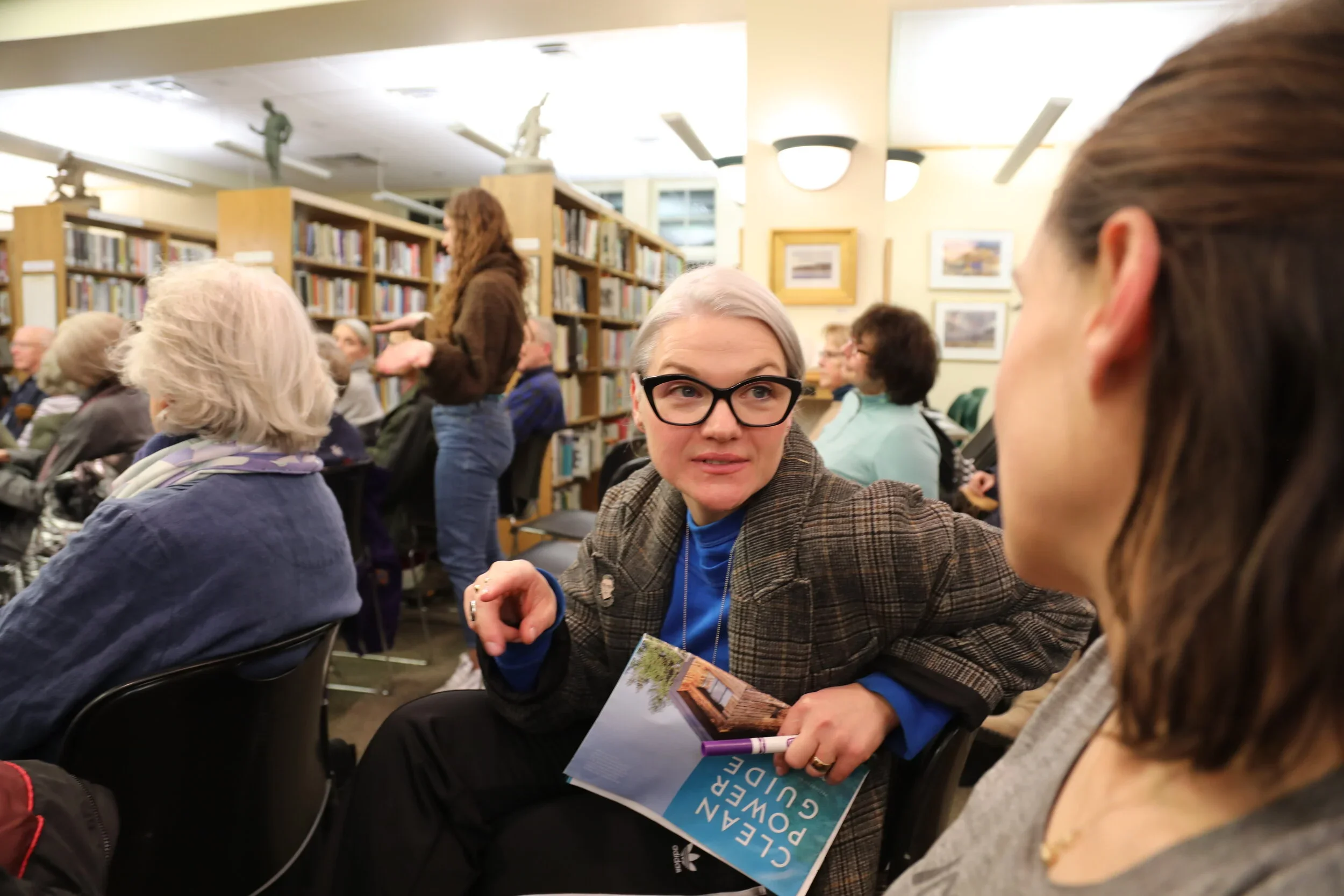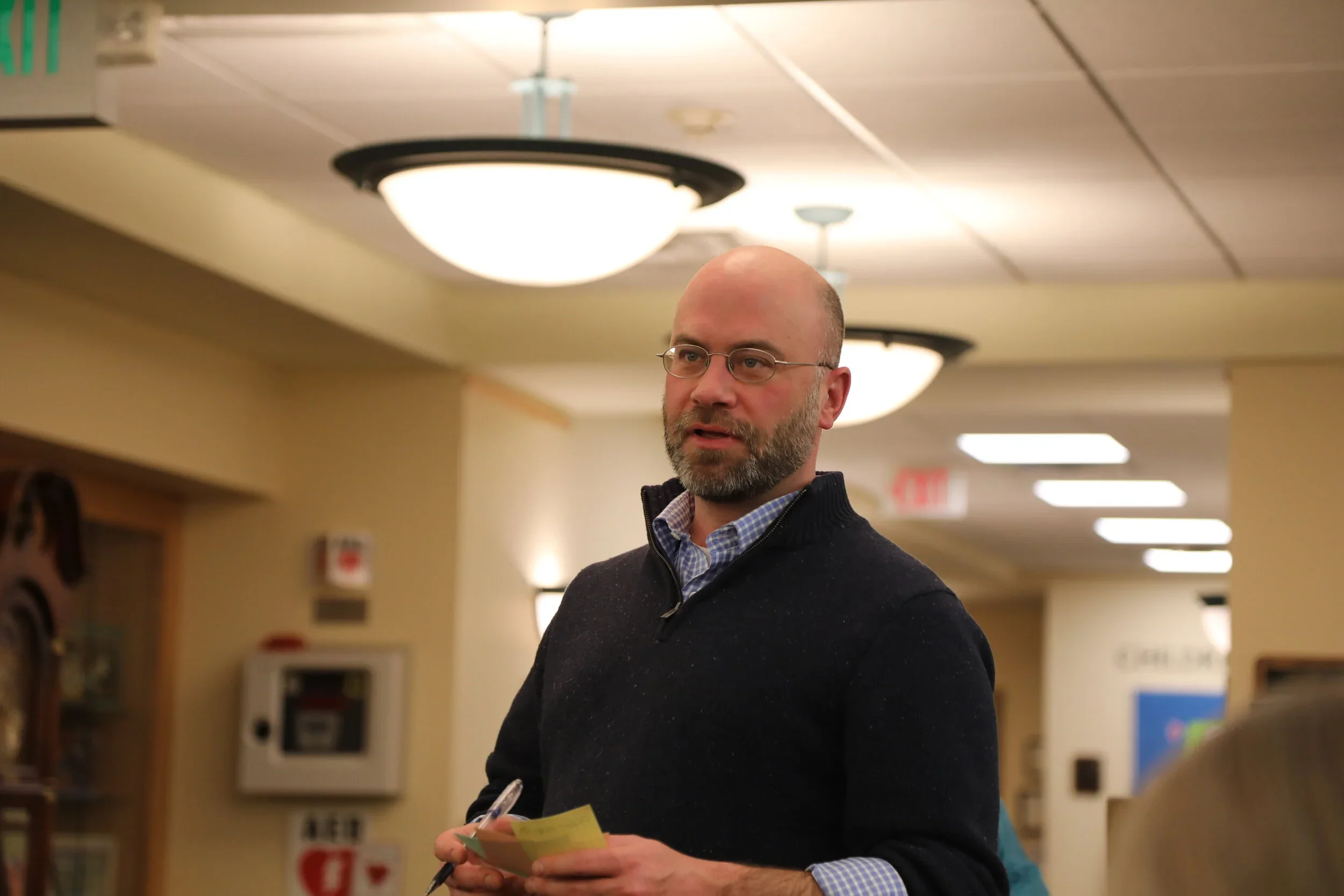Climate Adaptation Planning
Village’s Climate Adaptation Plan
The Village Board adopted the plan in January 2025. It’s the culmination of a lot of community engagement and outreach to vulnerable populations and research on which impacts are most relevant to our area.
Vision Statement:
We envision Rhinebeck Village as a resilient, energy efficient, and healthy place to live and work, where adaptations to climate change are supported by a well-informed community and science-based solutions.
Background
In 2020 we started hosting workshops to hear from the public, community stakeholders, and officials and staff, including a Community Resilience Building Workshop facilitated by the Nature Conservancy and the Hudson River Watershed Alliance. We researched impacts and vulnerabilities and created a Vulnerability Assessment. We combed through municipal policies that affect resiliency.
The Village took part in the Climate Action Planning Institute, a cohort of a dozen municipalities in the Hudson Valley (CAPI),, led by ICLEI, Local Governments for Sustainability and Hudson Valley Regional Council. The cohort kicked off with a workshop on February 8th, 2024 in Peekskill, NY. In the workshop a range of regional climate projections were presented and reviewed. In the summer of 2024, we turn to visioning and creating a plan.
For more information about predicted changes to the climate in Dutchess County over the next century, please refer to the Dutchess County Climate Summary from NYSDEC's Hudson River Estuary Program.
Photo by Avery Gilbert “Contemplating Sea Level Rise” used in the Natural Resources Inventory
Impacts
We identified these climate change impacts as the top threats:
heat emergencies and drought
extreme weather events (flooding, power outages, damage)
sea level rise on the Hudson River
Photo of Asher Dam overflowing after a December 2023 storm.
Vulnerabilities
The Village water system—which also services customers in the Town, such as Rhinecliff and the Gardens)—is located on the banks of the Hudson River. Scientists predict that the Hudson River will rise by 36-72” (3-6ft) by the end of the century. Our drinking water is drawn from the Hudson River and treated. Encroachment of the salt front (where the Hudson River draws salt water up from the Atlantic) is also a concern.
The Amtrak train station and train tracks on the banks of the Hudson River could also be impacted by sea level rise.
The Village’s population is predominantly older adults. From the new Village Comp Plan: “The Village stands out in 2020 as one of the oldest communities by median age in New York State, with a median age of 56, compared with 39 for the state.” Older adults, children, and people with preexisting conditions are more susceptible to the impacts of climate change.
Lack of a local newspaper had been identified as a vulnerability in 2020, but since then, we now have the Daily Catch. Still, it can be difficult to share news and announcements with the community.
The Landsman Kill and many smaller intermittent streams flow through the village, making streets, bridges, and residents’ basements and yards susceptible to flooding with more frequent and intense storms.
The village has other centrally located assets, which are strengths, but also need to be protected, especially in emergencies, such as the Rhinebeck Central School District, Village municipal offices and Police and Fire Departments, Northern Dutchess Hospital, Astor Services, the business district, and places of worship.
Adaptations
Adapting to these impacts may mean reducing their harm, or protecting the village as much as possible, or it may mean developing coping mechanisms for living with climate change.
Read the Climate Adaptation Plan to see what we came up with.
Focus Group: Older Adults & Climate Vulnerability
in Rhinebeck Village & Town
Rhinebeck Village and Town collaborated to host a focus group on June 14, 2024 at Starr Library. The discussion centered on the experiences of old adults who are a particularly large portion of our population here and who have specific needs in the face of climate change. Impacts discussed were localized flooding, heat emergencies, drought, wild fire smoke, and sea level rise on the Hudson River.
As part of the process we conducted a survey with over 120 participants.
Photo of the Town/Village Focus Group with Older Adults, June 14, 2024
4 Municipalities Attend Community Resilience Building Workshop
On February 13, 2020, Town and Village of Rhinebeck as well as Town and Village of Red Hook gathered together to knowledge-share and prioritize needed adaptations to climate change threats.
Hudson River Watershed Alliance and the Nature Conservancy have partnered to develop and facilitate a one-day workshop for municipalities. We are thrilled we were offered this workshop free of charge. The workshop attendees were limited to about 10 government employees and civic leaders from each municipality.
The workshop focused on coastal flooding, drought, and inland flooding—which turned out to be the most pressing area for Rhinebeck Village. The workshop provided prioritization recommendations for projects for the Village Board and CSC Task Force as well as recommendations for funding sources.
More about the workshop can be found at www.communityresiliencebuilding.com
Public Community Adaptation Workshop
On January 9, 2020, at Starr Library, the CSC Task Force hosted a public workshop it had developed to educate the public about the concept and importance of adapting to climate change. We also wanted to collaboratively:
map our community stakeholders
get an idea of which climate change impacts are most relevant to our area
brainstorm adaptation techniques as a group
The CSC reached out to invite a variety of folks from across the community to participate from their different points of view. We had about 50 attendees.
You can view the workshop flow (and feel free to request a PDF if you’d like to run the workshop for another group).
The results were very interesting! We ended up with a list of about 25 stakeholder groupings and 25 climate change impacts. In the third exercise, we assigned each breakout group a random stakeholder paired with a random impact. We then instructed them to imagine how a scenario might play out because of particular vulnerabilities. They then had to describe how they would plan for such a scenario and brainstorm adaptation techniques that would minimize the damage of the negative scenario. We had a LOT of notecards and ideas, which we’ve transcribed here. Check it out!
Major take-aways:
Rhinebeck Village is very prone to flooding and we need to understand how to handle stormwater.
Participants voiced concern about our drinking water supply (the Hudson River) and water infrastructure.
Attendees raised the issue of trees dying because of the shifting climate and from severe storm damage.
The Village’s aging population faces challenges with extreme weather, power outages, and needs more robust communication and social networks.
At the same time, it was urgently voiced that our community’s young people (some of whom attended the workshop!) will be bearing the brunt of climate change, and so partnerships with the school district are vital.
Public Health: Lyme and other tick-borne illnesses were raised, as well as anxiety aggravated or brought on by climate change.
The community expressed concern for local agriculture—such a vivid and unique aspect of our area—and would like to see engagement with Drawdown science.
Climate Resiliency Planning Tool
In Spring/Summer 2020, Danielle Salisbury, staff member at CCE Dutchess County, used a process called the Resiliency Planning Tool to comb through Village policies and procedures. (And it was a very fine-toothed comb!) This work focused on the Village’s ability to withstand climate-induced hazards. It teases out recommendations, for example, on how to update our Hazard Mitigation plan, Emergency plan, and lay groundwork for any preventative measures in the face of stormwater flooding. CCE was able to provide this service free of charge.
View Danielle’s slides from a 2020 presentation to the Village Board
In fall 2025, the Village undertook an update to the tool, again assisted by CCEDC. Report is coming soon.
